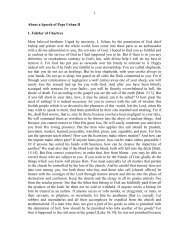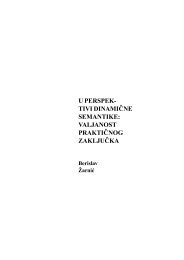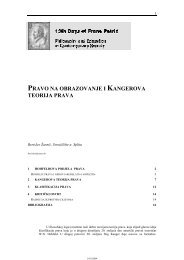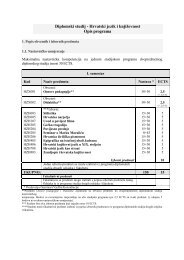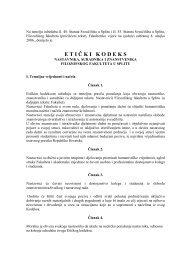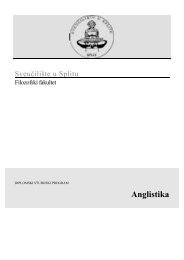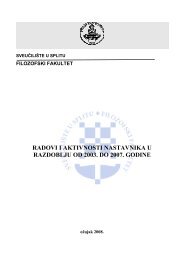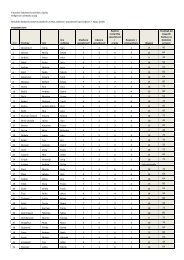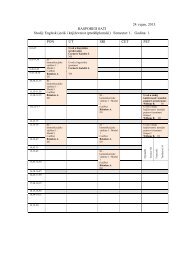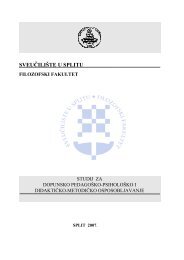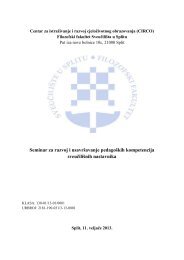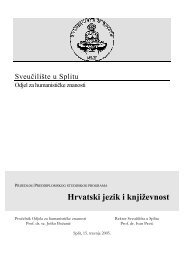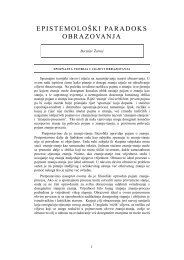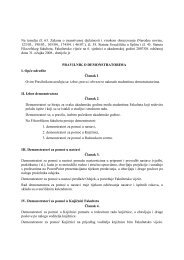English Studies
English Studies
English Studies
You also want an ePaper? Increase the reach of your titles
YUMPU automatically turns print PDFs into web optimized ePapers that Google loves.
G R A D U A T E D E G R E E P R O G R A M M E : E N G L I S H S T U D I E S<br />
methods hours / Research project.<br />
Student participation is encouraged through various tasks and activities,<br />
such as: problem-solving tasks, group work, pair work, online grammar<br />
Assessment<br />
methods<br />
Language of<br />
instruction<br />
Quality<br />
assurance<br />
methods<br />
development and testing tools, etc.<br />
The assessment of student knowledge/performance will be based on the<br />
following:<br />
Continuous assessment (diagnostic tests, independent homework/project<br />
tasks, achievement tests).<br />
Exam: written.<br />
<strong>English</strong><br />
1. Anonymous student feedback via questionnaires and surveys (permanent<br />
online anonymous commenting facility and via paper questionnaires).<br />
2. Lecturers responsible for the same subject area collaborate closely and<br />
monitor each other’s work.<br />
3. Occasional class observations and assessment by departmental<br />
colleagues.<br />
4. Occasional open and public lectures for all students and colleagues also<br />
via life online technology (camera and microphone).<br />
5. Recording of lectures via web/digital cam for later analysis and offline<br />
repetition.<br />
Course title Literary text and discourse<br />
Course code HZE605<br />
Type of course Lecture + Seminar / Advisory hours<br />
Elective course<br />
Level of course Advanced level course<br />
Year of study First Semester One<br />
ECTS<br />
(Number of<br />
credits allocated)<br />
Name of lecturer<br />
Learning<br />
outcomes and<br />
competences<br />
6 ECTS credits<br />
Contact hours (30 lectures + 25 seminars + 5 advisory hours) = 1.5 credits.<br />
Student study time (135 hours) = 4.5 credits.<br />
Prof. Dr Mirjana Bonačić<br />
Ilonka Peršić, Assistant<br />
After successful completion of the course, students are expected to<br />
understand the nature of literary discourse and apply this understanding to<br />
address complex questions such as how literary texts make sense, what kind<br />
of sense they make, and why they make sense in one way rather than<br />
another. Their experience of reading as an active and critical approach to the<br />
text and their competence of using techniques of analysis should prove<br />
useful in reading and interpreting texts whether they are literary or nonliterary.<br />
The acquisition of advanced reading skills is indispensable in enabling<br />
18



